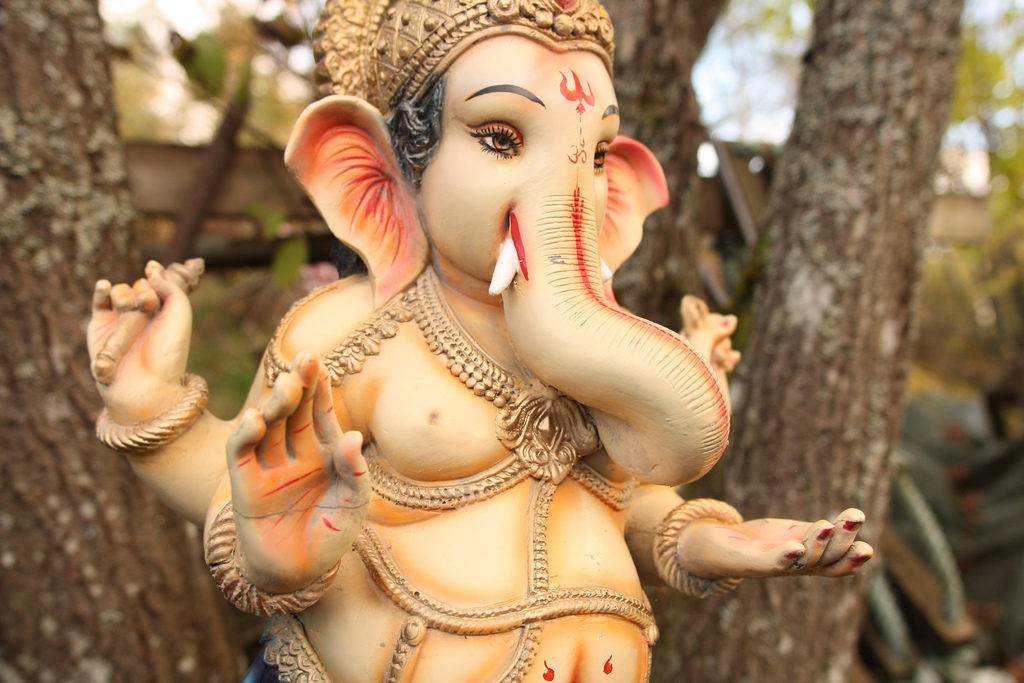Ganesh Chaturthi (guh-NESH cha-TUR-thee) is a festival that pays homage to Lord Ganesh, the remover of obstacles, and celebrates the day of his birth. Many recognize that Lord Ganesh brings order in this universe and worship him before embarking on a new endeavor, intellectual journey, or business enterprise. Therefore, it is common to see images or statues of him in these places.
One of Hinduism’s most revered personalities, Ganesha is widely recognized for having the head of an elephant and is the son of Shiva (the God of Transformation) and his wife Parvati.
Every year, his birth is celebrated with a 10-day festival, during which four main rituals, namely Prana Pratishta, Shodashopachara, Uttarpuja, and Ganpati Visarjan are performed.
Festivities begin as Ganesha deities, generally made of clay and decorated with flowers and lights, are set up in private homes and/or temporary public stages called pandals. Priests then conduct Prana Pratishta, a ceremony in which mantras are recited, invoking Ganesha’s presence into the clay deity, after which he is offered formal prayers in a 16-step worship called Shodashopachara.
During each day of the celebration, prasad, or food blessed by the deity, is distributed throughout the community. Followers also meditate on the many aspects of his form, which symbolize deeper spiritual truths, while many choose to observe fasts.
On the last day of the festival, Uttarpuja is performed, a ritual bidding Ganesha farewell. After, he is carried in a public procession with kirtan (devotional music) to a nearby body of water in which he is immersed. This custom is Ganpati Visarjan, and it symbolizes his return to Mount Kailash, a peak in the Himalayas where Shiva and Parvati are said to reside.
Though no one really knows exactly how far back in history Ganesha Chaturthi has been observed, some historians believe the festival became a major public event in the 1600s when Indian king, Shivaji Bhosale I, first sponsored the celebration.
The festival is said to have been revitalized later in the 19th century as a symbol of India’s independence movement, by freedom fighter Bal Gangadhar Tilak.
In 1892, the cities of Pune and Mumbai became packed with devotees, despite the fact that such large gatherings were not allowed by the British. The 10-day festival was celebrated with a patriotic gusto fueled by a united deep devotion and love for Ganesha.
To this day, Hindu festivals continue to be celebrated with similar pomp and fervor, signifying the everlasting power such devotion can generate.
When is Ganesh Chaturthi?
AUGUST 31, 2022
Sep. 18, 2023
Sep. 06, 2024
Sep. 26, 2025

5 Things to Know About Ganesh
…Ganesha is also known as the guardian of esoteric knowledge. It is no surprise, therefore, that he is considered the presiding deity of astrology. Practitioners of the Vedic science pray to him, believing he has an intimate understanding of how the planets affect the karma and destiny of each soul… READ MORE







































